Kinley Gomez goes Valley to portray Dancer in ‘The Eight’
 The Laboratory Theater will air the first of three screenings of a filmed theatrical production of Jeff Goode’s The Eight: Reindeer Monologues. As the title intimates, each of Santa’s elite eight sleigh-pullers has something to say about one reindeer’s accusations that Santa raped her in the toy factory. Playing the reindeer Dancer is talented local actor Kinley Gomez.
The Laboratory Theater will air the first of three screenings of a filmed theatrical production of Jeff Goode’s The Eight: Reindeer Monologues. As the title intimates, each of Santa’s elite eight sleigh-pullers has something to say about one reindeer’s accusations that Santa raped her in the toy factory. Playing the reindeer Dancer is talented local actor Kinley Gomez.
Dancer is an ex-ballerina who found refuge at the North Pole after it became illegal and downright unsafe for reindeer to dance The Nutcracker, Swan Lake and the other classics 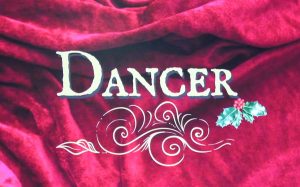 back in the day. Goode conceived of Dancer as a ditzy, adorably clueless Jewish princess but Director Brett Marston and Gomez injected a Valley girl quality into her persona.
back in the day. Goode conceived of Dancer as a ditzy, adorably clueless Jewish princess but Director Brett Marston and Gomez injected a Valley girl quality into her persona.
“We approached Dancer as a California Valley girl,” says Director Brett Marston. “She totally got it, locked 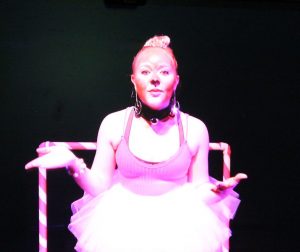 into that choice so solidly and nailed it. She is so delightful in this play.”
into that choice so solidly and nailed it. She is so delightful in this play.”
The Valley girl reference traces its origins to the eponymous 1982 song by Frank Zappa and 1983 movie starring Nicholas Cage – as well as Clueless featuring Alicia Silverstone (although, seriously, a real Valley girl would never be a virgin who can’t drive). The term refers to the distinctive speech patterns and inflection (a rising pitch at the end of sentences) of San 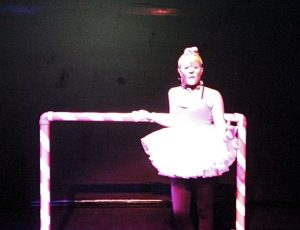 Fernando Valley upper middle-class adolescent girls of that decade which persists to the present day in phrases like “like,” “whatever,” “totally” and “oh my God,” which even has its own acronym in text.
Fernando Valley upper middle-class adolescent girls of that decade which persists to the present day in phrases like “like,” “whatever,” “totally” and “oh my God,” which even has its own acronym in text.
“You know I love movies like Clueless and Legally Blonde,” adds Kinley, who’s also spent some time in Los Angeles and bumped into some of her contemporaries who talk the talk.
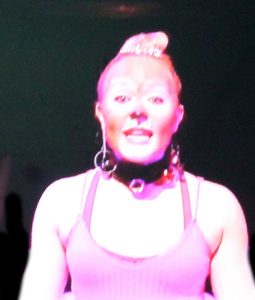 “Dancer’s monologue has the most comedic content of any of the eight, but [Brett Marston] and I decided to really push [the ditzy, Valley girl affectation] forward because it contrasts so starkly with the dark secret she’s keeping,” Kinley continues. “She really needed to have this lightness to her, this fun, passionate side because [at heart] she’s unsure about herself and doesn’t know how to tell people what’s happened to her.”
“Dancer’s monologue has the most comedic content of any of the eight, but [Brett Marston] and I decided to really push [the ditzy, Valley girl affectation] forward because it contrasts so starkly with the dark secret she’s keeping,” Kinley continues. “She really needed to have this lightness to her, this fun, passionate side because [at heart] she’s unsure about herself and doesn’t know how to tell people what’s happened to her.”
So initially, Dancer really doesn’t seem to have much to offer on the subject of Vixen’s allegations that Santa Claus is a serial rapist and pedophile. She’s so bubble-headed, she seems oblivious to the danger 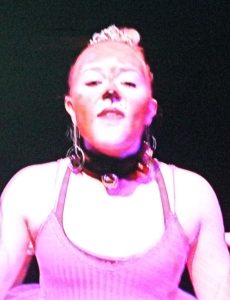 she was apparently in when she wandered into Santa’s workshop one day before Vixen went public with her accusations about the horrors Kringle perpetrates in the place where he and his elves make toys for tots.
she was apparently in when she wandered into Santa’s workshop one day before Vixen went public with her accusations about the horrors Kringle perpetrates in the place where he and his elves make toys for tots.
In some productions of The Eight, that’s where the story ends, but Marston chose to draw out a darker view of the events that transpired at the North Pole.
“She was a victim of Santa Claus too, but doesn’t really confront that. It’s too much for her to confront emotionally, so she keeps it at a distance by keeping things light. Instead, she processes what’s happened by dancing.”
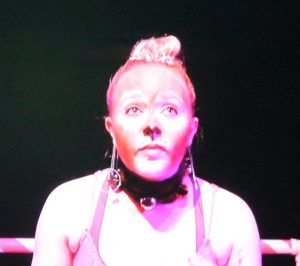 “Even though I still had to come off as this ditzy, fun, dancing Valley-girl character, I also had to get across that she was also assaulted and has a story that’s she’s too scared to tell,” Kinley expounds.
“Even though I still had to come off as this ditzy, fun, dancing Valley-girl character, I also had to get across that she was also assaulted and has a story that’s she’s too scared to tell,” Kinley expounds.
And the fact that she’s so fun-loving and naive makes that revelation all the more impactful when it finally comes.
According to the Bureau of Justice Statistics, in 2016 only 23 percent of all victims report incidents of rape or sexual assault 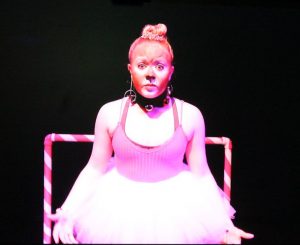 to the police (compared to 54 percent of robbery victims and 58 percent of aggravated assault victims). Breaking that statistic down a bit, a survivor’s relationship to the perpetrator has a direct bearing on their likelihood of reporting the assault. Only 18 to 40 percent of the sexual assaults committed by a friend or acquaintance are reported, compared to 46-66 percent of stranger rapes.
to the police (compared to 54 percent of robbery victims and 58 percent of aggravated assault victims). Breaking that statistic down a bit, a survivor’s relationship to the perpetrator has a direct bearing on their likelihood of reporting the assault. Only 18 to 40 percent of the sexual assaults committed by a friend or acquaintance are reported, compared to 46-66 percent of stranger rapes.
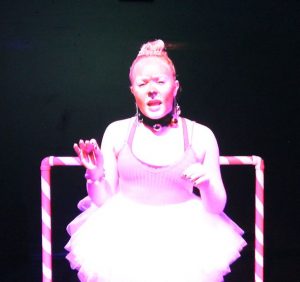 Survivors have many reasons for bearing the consequences of their assault in silence. Making this highly-personal list are shame, stigma, self-blame, fear of reprisal, belief that the authorities won’t or can’t do anything to help and fear of the criminal justice system. Or as one survivor related more than a decade after her assault, “”I wanted to be put together, I wanted to make my parents proud, and being a victim of a violent crime, of two brutal rapes, was not something that I thought fit into that perfect box.”
Survivors have many reasons for bearing the consequences of their assault in silence. Making this highly-personal list are shame, stigma, self-blame, fear of reprisal, belief that the authorities won’t or can’t do anything to help and fear of the criminal justice system. Or as one survivor related more than a decade after her assault, “”I wanted to be put together, I wanted to make my parents proud, and being a victim of a violent crime, of two brutal rapes, was not something that I thought fit into that perfect box.”
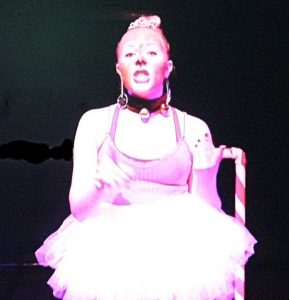 The risks associated with reporting are especially problematic where, as here, the perpetrator is not only your boss, but a beloved, highly-respected global icon who employs thousands of reindeer and elves and is responsible for trillions of dollars in economic opportunity worldwide (and $755.3 billion in the United States alone). One need look no further than what happened to Christine Blasey Ford during the Brett Kavanaugh confirmation hearings in 2018 to see what can happen. Ford’s credibility was called into question, as were the reputations of those who verified her story, and she even received
The risks associated with reporting are especially problematic where, as here, the perpetrator is not only your boss, but a beloved, highly-respected global icon who employs thousands of reindeer and elves and is responsible for trillions of dollars in economic opportunity worldwide (and $755.3 billion in the United States alone). One need look no further than what happened to Christine Blasey Ford during the Brett Kavanaugh confirmation hearings in 2018 to see what can happen. Ford’s credibility was called into question, as were the reputations of those who verified her story, and she even received 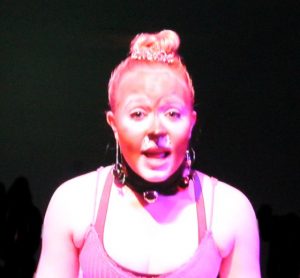 a number of death threats.
a number of death threats.
During the hearings, group texts between survivors on Instagram lit up across the country with self-care memes. Stories under the WhyIDidntReport hashtag flooded Twitter. Many came forward to share their stories, some for the first time, but for every woman who came forward, as many as nine others remained silent.
While the #MeToo and #Time’sUp movements have done a lot 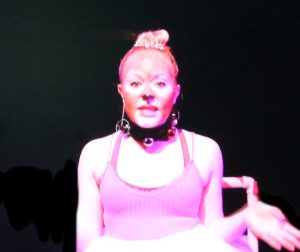 to initiate conversations about sexual assault, negative media coverage of survivors has the opposite effect. If someone of the stature of an Anita Hill or Christine Blasey Ford can receive death threats and experience unbridled victim shaming, how would a reindeer like Dancer or Vixen have any chance of being believed, never mind obtaining justice?
to initiate conversations about sexual assault, negative media coverage of survivors has the opposite effect. If someone of the stature of an Anita Hill or Christine Blasey Ford can receive death threats and experience unbridled victim shaming, how would a reindeer like Dancer or Vixen have any chance of being believed, never mind obtaining justice?
Regardless of age, gender or species, the impact of 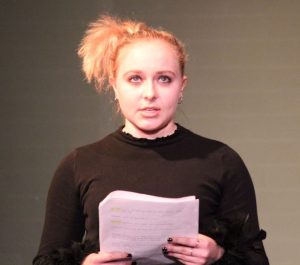 sexual violence goes far beyond any physical injuries. The trauma of being sexually assaulted can be debilitating. Survivors experience a multitude of emotions, from feeling scared, ashamed and alone to being plagued by nightmares, flashbacks and other unpleasant memories. The world doesn’t feel like a safe place anymore. They no longer trust others. They don’t even trust themselves. They may question their judgment, self-worth and even their sanity. Many feel they are “dirty”
sexual violence goes far beyond any physical injuries. The trauma of being sexually assaulted can be debilitating. Survivors experience a multitude of emotions, from feeling scared, ashamed and alone to being plagued by nightmares, flashbacks and other unpleasant memories. The world doesn’t feel like a safe place anymore. They no longer trust others. They don’t even trust themselves. They may question their judgment, self-worth and even their sanity. Many feel they are “dirty”  or “damaged goods.” Relationships feel dangerous. Intimacy proves impossible. Many struggle with PTSD, anxiety, and depression.
or “damaged goods.” Relationships feel dangerous. Intimacy proves impossible. Many struggle with PTSD, anxiety, and depression.
While it is common to think that if you don’t talk about your rape, it didn’t really happen, you can’t heal when you’re avoiding the truth. In fact, avoidance and denial actually heighten feelings of shame and isolation.
As scary as it is to open up, true healing can only begin by breaking the silence. Most survivors relate that they were only able to begin reclaiming their lives and bodies once they shared the trauma with supportive professionals, friends or family members.
So it’s questionable  whether Dancer can really dance away her pain and her all-over-the-place ADD and bubble-headed ditziness may be among the network of defense mechanisms she employs to avoid confronting her feelings and hold people at bay.
whether Dancer can really dance away her pain and her all-over-the-place ADD and bubble-headed ditziness may be among the network of defense mechanisms she employs to avoid confronting her feelings and hold people at bay.
“I feel like everyone knows someone who’s been assaulted,” Kinley reflects somberly. “It’s so important that people are starting 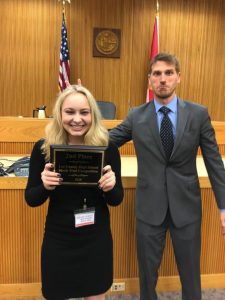 to speak out. This play and my performance in it sends out a strong message. Even though it’s a comedy and there are funny parts to the show, the overall theme of the play is that there are these sexual assaults and you have to speak up and say something.”
to speak out. This play and my performance in it sends out a strong message. Even though it’s a comedy and there are funny parts to the show, the overall theme of the play is that there are these sexual assaults and you have to speak up and say something.”
Gomez see evidence that this is beginning to happen, even as early as high school.
“At my school, they give more talks about [sexual harassment, assault and rape]t. And because of social media and the internet, it’s a lot easier for people who are assaulted to get the help they need – and for those who’ve assaulted others to get in trouble for what they’ve done. So I think people are more aware now of the consequences of what can happen and just how bad it is in general.”
And that will hopefully lead to a change in attitude and behavior.
For his part, Marston, who feels fortunate that Kinley agreed to play the part. She provided the perfect combination of ditz and gravitas.
“Delightful. Pure delight,” says Marston of his actor. “Her process as an actor is delightful. She takes direction so incredibly well. When she discovers something or we discover something together, she just takes it and runs with it and applies it immediately. She has an incredibly bright future in theater and film.”
The Eight: Reindeer Monologues airs three times on LabTV. Go here for play dates, times and digital pass information.
December 11, 2020.














 Tom Hall is both an amateur artist and aspiring novelist who writes art quest thrillers. He is in the final stages of completing his debut novel titled "Art Detective," a story that fictionalizes the discovery of the fabled billion-dollar Impressionist collection of Parisian art dealer Josse Bernheim-Jeune, thought by many to have perished during World War II when the collection's hiding place, Castle de Rastignac in southern France, was destroyed by the Wehrmacht in reprisal for attacks made by members of the Resistance operating in the area. A former tax attorney, Tom holds a bachelor's degree as well as both a juris doctorate and masters of laws in taxation from the University of Florida. Tom lives in Estero, Florida with his fiancee, Connie, and their four cats.
Tom Hall is both an amateur artist and aspiring novelist who writes art quest thrillers. He is in the final stages of completing his debut novel titled "Art Detective," a story that fictionalizes the discovery of the fabled billion-dollar Impressionist collection of Parisian art dealer Josse Bernheim-Jeune, thought by many to have perished during World War II when the collection's hiding place, Castle de Rastignac in southern France, was destroyed by the Wehrmacht in reprisal for attacks made by members of the Resistance operating in the area. A former tax attorney, Tom holds a bachelor's degree as well as both a juris doctorate and masters of laws in taxation from the University of Florida. Tom lives in Estero, Florida with his fiancee, Connie, and their four cats.